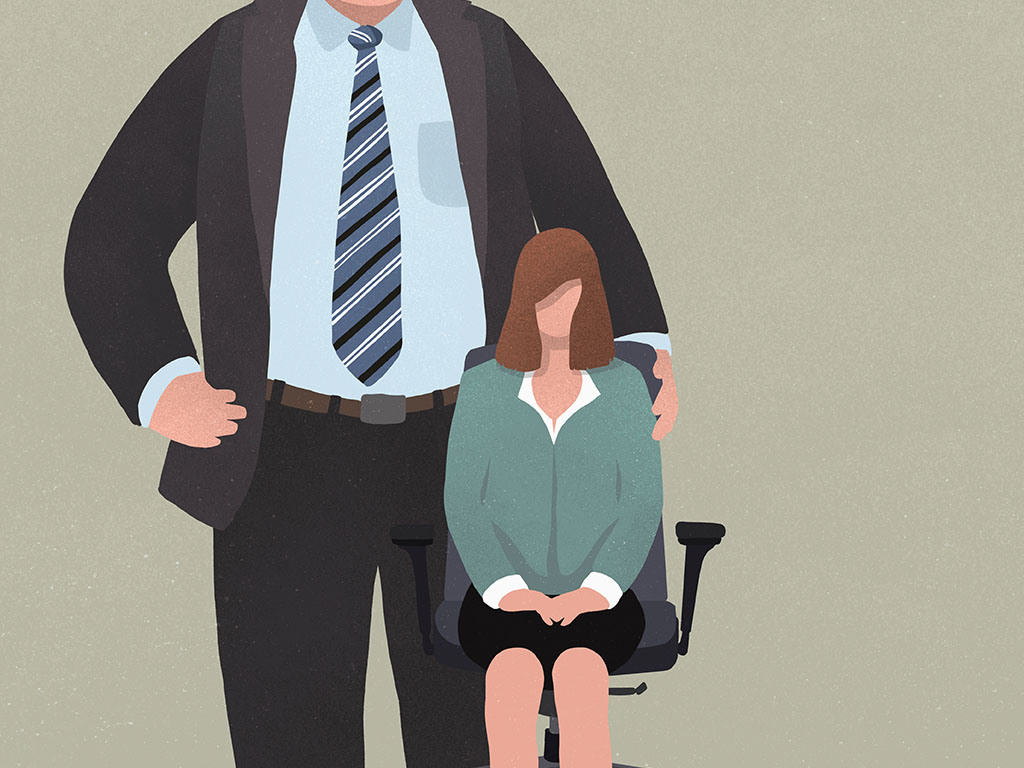Four women have now come forward to accuse former U.S. Vice President Joe Biden of inappropriately touching them — something the politician denies.

Lucy Flores, a Nevada politician, recently wrote an essay in the Cut about the time she said Biden approached her from behind before a speech, smelled her hair and then kissed her on the head.
Following Flores’ allegation, a Connecticut woman named Amy Lappos told The Courant that Biden touched her inappropriately and rubbed noses with her during a 2009 political fundraiser. On Tuesday, two more women told the New York Times that Biden touched them in ways that made them “uncomfortable.”
WATCH BELOW: ‘He rubbed noses with me’ — Second woman accuses Joe Biden of inappropriate conduct

Both Flores and Lappos said that even if Biden’s actions were not sexual, they were inappropriate, disrespectful and made them feel uncomfortable.
“It’s not affection. It’s sexism or misogyny,” Lappos said.
“He made me feel uneasy, gross, and confused,” wrote Flores.
The allegations against Biden have prompted a discussion about what behaviour “crosses the line,” and what people can do if they’ve been touched inappropriately in a professional setting.
What is inappropriate touching in the workplace?
According to Sherri Rabinovitch, a human resources expert and founder of The People Guru, inappropriate touching is behaviour that makes someone feel uncomfortable. It falls under the umbrella of sexual harassment, she said.
READ MORE: ‘My stomach was in knots’ — How to tell if you’re being bullied at work
“If it makes you feel uncomfortable, it’s unwanted,” she told Global News. “Unless you have a long history of a close relationship with a person in the workplace, there’s never a reason to touch them.”
While certain actions may make someone feel uncomfortable, inappropriate touching isn’t always clear-cut in the eyes of the law.
David J. Doorey, a professor of labour law at York University, told Global News that workplace sexual harassment is defined as conduct that’s sexual in nature, and behaviour that the harasser “knew or ought reasonably to have known is unwelcome.”
“The requirement that the perpetrator ‘ought reasonably to know the conduct is unwelcome’ means that whether or not conduct is unlawful is not always straightforward,” he explained.
WATCH BELOW: Nancy Pelosi weighs in on Joe Biden inappropriate touching allegations

“The legal test asks whether a reasonable person seeing what happened would conclude that the behaviour was unwelcome.”
What should you do if you experience unwanted touching?
From a legal perspective, Doorey says making it clear that behaviour is unwanted is important. He suggests telling the person who touched you their behaviour is inappropriate.
READ MORE: Want a raise? Here’s how to ask your boss for more money
“This eliminates the ability of the toucher to argue later that they were unaware that the behaviour was unwelcome,” he explained.
Rabinovitch echoes this, and suggests saying, “That made me uncomfortable. I’d rather you not do it again.”
There may be times, however, that you don’t feel comfortable addressing the behaviour with the person directly.
In these cases, Phanikiran Radhakrishnan, an associate professor of organizational behaviour and human resource management at the University of Toronto, says you should talk to management so they can confront the person.
WATCH BELOW: Empowering women in the workplace

“It can put too much of a burden on the victim to tell whoever is touching not to touch, because they’re already often in a very vulnerable position,” she said to Global News. “The organization needs to take steps to make sure these kinds of behaviours are not occurring.”
If the unwanted touching is being done by your boss, it may be even harder to navigate.
“If the toucher is a superior, then it may not be easy to forcefully object,” Doorey said. “But employees should figure out a way to signal their concerns in some manner or report the behaviour to a person in authority.”
READ MORE: ‘It’s not one size fits all’ — Why open office plans don’t work for everyone
- Canadian man dies during Texas Ironman event. His widow wants answers as to why
- Several baby products have been recalled by Health Canada. Here’s the list
- ‘Sciatica was gone’: hospital performs robot-assisted spinal surgery in Canadian first
- Dating apps ‘worse than ever’ for your privacy, report warns
Rabinovitch suggests documenting the unwanted touching — when it happened, where it happened and who was around — and present that information to management or human resources. When presenting the information, remain calm, she said.
Do you have any legal rights?
If the unwanted touching does not get resolved — or gets worse — you may want to take legal action.
WATCH BELOW: Salaries of women CEOs are double-pane glass ceiling

“Sexual harassment can be a violation of human rights legislation, a breach of an employment contract, and a tort of infliction of mental suffering,” Doorey said.
“If the harasser is a member of management or the employer has learned of harassment by a co-worker but fails to take any action to redress it, then the employee may be entitled to damages from the employer and the harasser.”
Doorey explains that damages depend on various factors, including the extent of the harm suffered. It’s best to seek advice from a lawyer who specializes in workplace harassment and discrimination.
What should workplaces do to combat unwanted touching?
Radhakrishnan said workplaces need to make it clear to employees what is appropriate behaviour. Employers should have clear policies around workplace harassment, and state inappropriate behaviour is not tolerated.
WATCH BELOW: How to recognize the signs of burnout at work

“Leaders who actively discourage unwanted behaviour … and are actively committed to preventing this, that’s where we see the positive effects,” she said.
To make sure you are never crossing the line, Rabinovitch said don’t touch people at work — period.
“It’s very important that in the workplace, there is no space for touching.”
Laura.Hensley@globalnews.ca




Comments